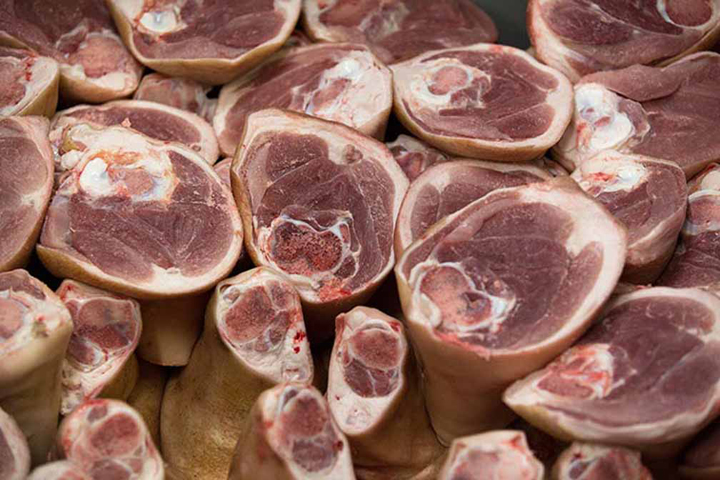
The country’s frozen pork inventory as of mid-June rose to its highest level in nearly 12 months due to the increase in imports, latest National Meat Inspection Service (NMIS) data showed.
Data from the NMIS indicated that the inventory of frozen pork as of June 14 went up by 1.47 percent to 50,582.75 metric tons, from its previous week level of 49,849.76 MT. The latest figure was also 26.84 percent higher than the 40,567.72 MT recorded on May 17.
On an annual basis, the latest nationwide frozen pork inventory was 3.75 percent higher than the 48,750.22 MT recorded on June 15, 2020.
NMIS data showed that bulk of the country’s frozen pork inventory or about 48,686.32 MT was imported while local pork accounted for 1,896.43 MT.
Historical NMIS data showed that the June 14 frozen pork inventory is the highest since July 13, 2020.
Imports expanded by 1.59 percent from the 47,924.02 MT recorded on June 7 and was 25.53 percent higher than the 38,783.36 MT recorded on May 17.
NMIS data also showed that Region 3 posted the highest frozen pork inventory at 15,955.58 MT, of which 98.21 percent or about 15,669.87 MT were imported.
The frozen pork inventory in the National Capital Region was estimated at 12,689.41 MT, of which 12,472.34 MT were imports.
The NMIS noted that its frozen pork inventory data covers pork carcass, primal parts and specialty cuts.
The government is banking on imports to augment the shortage in domestic pork supply and to arrest rising pork prices.
The Executive branch implemented measures aimed at lowering pork tariffs to as low as 10 percent and hiking minimum access volume (MAV) for pork to plug the domestic shortfall.
The BusinessMirror earlier reported that the country’s purchases of imported pork bellies and cuts are on track to reach an all-time high after shipments in January to May surged by nearly 330 percent to 98,369.608 MT, surpassing last year’s purchases.
Industry players attributed the increase to the need to plug the shortfall in domestic supply which caused the spike in retail prices. They also noted that the reduction in pork tariffs contributed to the quadrupling of imports of prime pork cuts. (Related story: https://businessmirror.com.ph/2021/06/10/philippine-pork-imports-may-reach-record-high-this-year-bai-data/).

